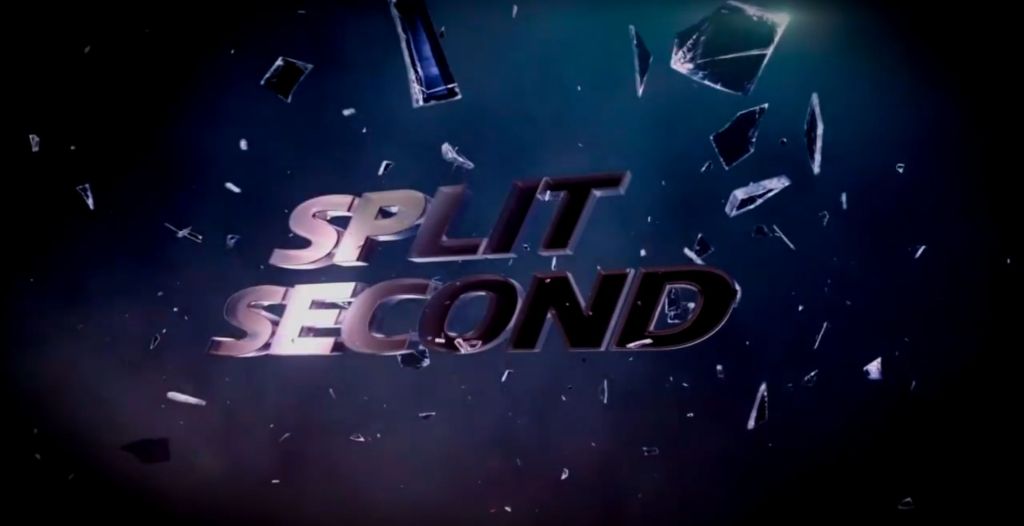All photos by Justin Boruta
I am at Toronto’s Woodbine racetrack and have just won my first bet. A two dollar bet that the Original Scotty would win the third race has turned into a cool five bucks. I begin to wonder what to do with this crumpled up bill until the photographer with me, Justin, says, “You gotta bet it all.” I like that logic, that’s gambling logic. So I do. “Five bucks on horse two to place in the fourth race,” I tell the teller/bookie man on the other side of the dried-piss-colored counter I’m standing in front of. He takes my bet with all the excitement and humanity of an empty cigarette packet. Justin and I take a seat and watch the race. Horse seven starts strong before quickly fading to the middle of the pack, finishing a disappointing fifth, and taking all my winnings with him. I’m watching horse-racing for the first time, and I think I may be hooked.
I got curious about horse racing from a friend who had a bachelor party at the track. I couldn’t make it, but the friend was adamant that I go another time. My friend was the first person my age I knew who had actually been to one—for millennials, it’s about as popular an activity as maintaining reliable eye contact. In my mind, every horse race took place during the Great Depression—a sepia-toned event where a young, vivacious Queen Elizabeth watched Seabiscuit win as men with “press” cards sticking out of their fedoras documented the whole thing. My only interaction with horse racing in the modern day is stumbling into an offsite betting establishment, which is great if you think opium dens look too peppy. Here was my friend, though, telling me it was much more than just grungy sadness. It was a tradition, a passion. My friend was alerting me to a secret order that existed, a whole community that employed thousands, that the government spent tens of millions on to subsidize, and that I, and many others, don’t think twice about.
Videos by VICE
I was intrigued by the tension: horse racing as both a former big-ticket event for the masses in the delirious 1920s and 30s, one of pomp and circumstance, versus its present reputation as a grim receptacle of misery. In the same way that I love when dilapidated buildings still have ornate roofs hinting of a grand past, I wanted to see if there was lingering traces of the ponies’ former glory in the present. Either that, or see if the whole scene was just irredeemably sad.
I arrive an hour before the races start as a setting sun glints off the cars in the half-filled parking lot. Woodbine is divided into three floors. The first is devoted to slot machines, while the third a loungey restaurant. The second is the heart of the action. It’s a huge space. There is a bar, a Tim Hortons, and a Pizza Pizza. For betting, there are two square rings on the east and west sides made up of counters manned by either tired humans or self-serve betting screens. Near these embankments on both wings are rows of long tables and chairs facing walls filled with TVs playing horse racing from both Woodbine and other tracks. These TV areas resemble a command center for an intelligence agency that monitors children’s ruined Christmases. On the south side, there are rows of elevated seating leading down to sliding-glass doors that open to the outside bleacher seating and ultimately the track itself. The track, a mile-long oval, encircles a pond and some idyllic greenery, a fabricated Eden surrounded by a grimly fallen world.
I buy a program for the evening’s races for 75 cents. It contains all the basic info: length of the race, weight of the jockeys, which horses have the best odds to win, and the names of the horses, which did not disappoint. Some of my favorite horse names were Baby Godzilla, Maximum Entropy, and Coconut Roll.
Now to begin the betting. I ask a young man named D’Angelo who is nice and has not yet become a hollowed-out husk of a human. D’Angelo explains to me the basic betting system: Pick a horse, state the race and amount of money you are betting, and then pick if you think that horse will win, place (come in first or second), or show (come in first, second, or third). Easy enough. This is just the first realm of betting—the real serious stuff comes next. D’Angelo starts explaining to me the exotic bets like triactors and superfecta boxes where you bet on multiple horses and finishes at a time. The number of math and terms starts to freak me out, which D’Angelo notices. “Maybe just stick with simple bet,” he says, to which I readily agree.
I know that by chickening out on the calculus required for the exotic bets, I’m missing out on the true power of this experience. The massive swirl of data, odds, and potentialities is what draws people to the sport. The majority of people in attendance are 50 years old and up, and they’re mostly solitary men. Suspenders and faded top-of-the-forearm tattoos are common fashion accessories. They are focused and diligent, poring over their facts and figures. Everywhere you look are men sitting in the quiet dignity that accompanies people when they have turned attending to their self-destruction into a duty. They are on that classic male quest to conquer and control life and luck through knowledge. If I just know enough, if I just master the unmasterable, I can turn things around. This is their church, the betting information their sacred texts.
It is not a welcoming place. I ask a couple of old-timers if they have any tips for me, and they both give me the basic spiel, pointing out in the program where it says which horse has the best odds. The message from both was clear, though: “Listen buddy, quit distracting me. I don’t come to the race track to talk to people.”
This is not a social activity. This is serious business. I don’t even know if people here are having what I would call fun. You don’t come to the track to have fun (millennial bachelor parties and writers excluded). You come to do the thing. Considering the amount of alcohol and testosterone here, the room feels sedate. Solemn even. Show some respect, service is in session. People here aren’t looking for trouble or to get wild, they are here to die with some dignity. It’s more hospice than party.
While these thoughts swirl around in my head, I realize that I’m being too harsh. While yes, there is the amount of sadness one would expect of of a place filled with gamblers, that’s not the only flavoring in the air. Church is the appropriate metaphor. There is a warmth from the leftovers of a faded glory and the comfort of long traditions. There is love. I meet a security guard who has been around racing her entire life, and who explains the difference between thoroughbred racing and standardbred racing. She has the endearing, nerdy energy of a board-game enthusiast. I overhear two young women getting advice about getting started in the business from a just-finished racing jockey. (You are not prepared for how tiny jockeys are; it looks like someone sprinkled a bag of baby carrots on the track.) Groups of Caribbean men heckle one another about winning the others’ pensions. I go down to the Paddock, a holding area where spectators can come down and look at the horses before they hit the track. They inspect the horses, taking notes, attempting to perceive the unknowable. I ask a man what I should be looking for. “Make sure they don’t have a limp,” he crows, getting a light chuckle from a dour companion.
I go outside to watch my first race. I’ve put two dollars on the seventh horse to place. The race starts. At first, I find it hard to focus in, as the race just seems like another part of the background. Then I see them. I’m surprised at how mad it seems. This isn’t orderly: The horses and their pulsating, vein-laden bodies combined with the frantic, whipping jockeys seem to be one chaotic mass, a brown blob with multiple heads jutting out. Then, as they round the final turn, the race reveals itself, the leaders emerge. An excitement fills the formerly sedate arena. People began cheering for their horse, screaming out their number. I’m screaming out my horse’s number. I’m no longer observing. I’m thoroughly invested in this moment. My heart is racing and mind reeling as my horse finishes second (but later knocked back to fifth because of a rule violation.)
That moment, when the horses round that final bend, felt familiar to me. All of a sudden, all of my worries, fears, and boredoms vanished. My whole self was in tune with this moment. It was the same feeling I get whenever I grab that final drink at last call, when I’m truly indulging some self-destructive and compulsive tendencies. It’s the thrilling illusion of escaping from one’s own agency. Just like that final shot, the horses coming around that bend bring with them the intoxicating element of potential. That anything can happen, that this is THE MOMENT when everything changes—or at least something changes. I’ve thrown my life onto the mercy of factors (a drink, the night, velocity, luck, fate) that I can’t control, and for a second, the anxiety of responsibility alleviates. It’s this charged moment, seeing your fate embodied by a horse and its rider, that has drawn people to the track. It’s the through line from its ebullient past to scuzzy present.
I think this is the appeal of our vices, from gambling to drugs. It’s that giving over of yourself to something bigger than you. One more bet or line of coke or online purchase, that’s going to be the one that makes me rich or confident or happy. I see Woodbine, with its beautiful landscapes and animals whipped into a frenzy, with its government subsidies and a legion hall’s worth of broken men attempting to understand the metrics of their failure, as a massive monument to this feeling. It’s a reenactment, a theater of this beautiful and tragic human flaw. So go to the horse track. I highly recommend it. It’s legitimately fun and cheap and a great way to watch humans engage in that timeless tradition of losing themselves in their own self-destruction.
Follow Jordan Foisy on Twitter.
More
From VICE
-

Screenshot: Disney Interactive Studios -

Screenshot: YouTube/Nintendo of America -

Collage by VICE -

Collage by VICE